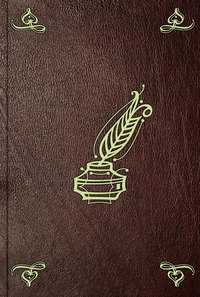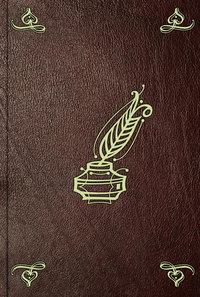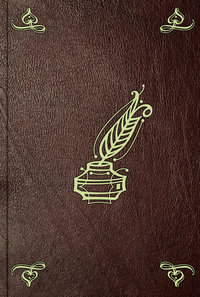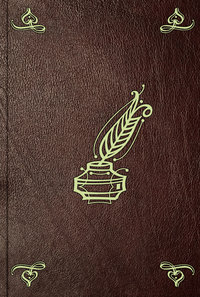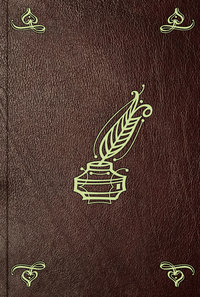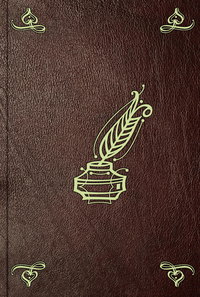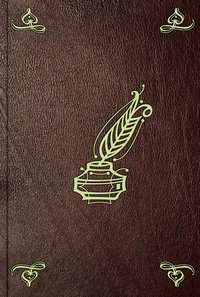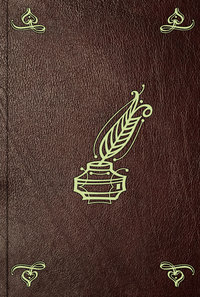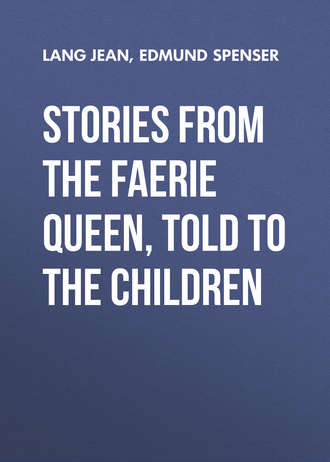 полная версия
полная версияStories from the Faerie Queen, Told to the Children
But Guyon ran quickly at him and caught him by the arm.
‘Who are you,’ he asked, ‘who hide your money in this lonely place, instead of using it rightly or giving it away?’
To which the man answered, ‘I am Mammon, the Money God. I am the greatest god beneath the sky. If you will be my servant, all this money shall be yours. Or if this be not gold enough for you, a mountain of gold, ten times more than what you see, shall be your very own.’
But Guyon shook his head. ‘I want none of your gold,’ said he.
‘Fair shields, gay steeds, bright arms be my delight,Those be the riches fit for an adventurous knight.’Then said the Money God, ‘Money will buy you all those things. It can buy you crowns and kingdoms.’
‘Money brings wars and wrongs, bloodshed and bitterness,’ said Guyon. ‘You may keep your gold.’
The Money God grew angry then.
‘You do not know what you refuse,’ he said. ‘Come with me and see.’
Guyon the fearless followed him into the thickest of the bushes and down a dark opening in the ground.
On and on they went through the darkness. Ugly things came and glared at them, and owls and night ravens flapped their wings, but Guyon had no fear.
At length they came to a huge cave whose roof and floor and walls were all of gold, but the gold was dimmed by dust and cobwebs. A light like the light of the moon from behind a dark cloud showed Guyon great iron chests and coffers full of money, but the ground was strewn with the skulls and dry bones of men who had tried to get the gold, and who had failed and perished there.
‘Will you serve me now?’ asked Mammon. ‘Only be my servant, and all these riches shall be yours.’
‘I will not serve you,’ answered Guyon. ‘I place a higher happiness before my eyes.’
Then Mammon led him into another room where were a hundred blazing furnaces.
Hideous slaves of the Money God blew bellows and stirred the flames, and ladled out of huge caldrons on the fires great spoonfuls of molten gold. When they saw Guyon in his shining armour, they stopped their work and stared at him in fear and amazement. Never before had they seen any one who was not as horrible and as ugly as themselves. Once again Mammon offered him the gold he saw, but again Guyon refused it.
Then did he bring him to a place where was a gate of beaten gold. Through this gate they passed, and Guyon found himself in a vast golden room, upheld by golden pillars that shone and sparkled with precious stones.
On a throne in this room sat a beautiful lady, dressed in clothes more gorgeous than any that the greatest king on earth ever wore.
‘That is my daughter,’ said Mammon. ‘She shall be your wife, and all these treasures that are too great to be counted shall be yours, if only you will be my servant.’
‘I thank you, Mammon,’ said Guyon, ‘but my love is given to another lady.’
The Money God was full of rage, yet still he thought that he might win Guyon to his will. He took him to a garden where dark cypresses hung their heads over the flaming blossoms of poppies that made men sleep for ever, and where every sort of poisonous flower and shrub flourished richly. It was called the Garden of Proserpine.
The most beautiful thing in the garden was a great tree, thickly leaved and heavily hung with shining golden apples. The branches of the tree hung their golden fruit over a dark river.
When Guyon went to the river’s brink and looked in, he saw many men struggling and moaning in the dark and fearful water. Some were trying to grasp the fruit that hung just beyond their reach, and others were trying vainly to get out.
‘You fool!’ said Mammon, ‘why do you not pick some of the golden fruit that hangs so easily within your reach?’
But Guyon, although for three long days and nights he had been without sleep and meat and drink in the dark land of the Money God, was too true and good a knight to do what Mammon wished. Had he picked the fruit, he would have put himself in Mammon’s power, and at once been torn into a thousand pieces.
‘I will not take the fruit,’ he said; ‘I will not be your slave.’
And then, for days and days, Guyon knew no more.
When he came to himself and opened his eyes, he found that his head was resting on the knee of the good old palmer.
After the witch’s beautiful servant had rowed Guyon away, the palmer had tried and tried to find a means of crossing the river, until at last he succeeded.
Day after day he sought Guyon, until one day a fairy voice called to him, loud and clear, ‘Come hither! hither! oh come hastily!’
He hurried to the place from whence the voice came, and in the dark thicket where Mammon had sat and counted his gold, he found Guyon lying.
A beautiful spirit with golden hair and shining wings of many colours, like the wings of a lovely bird, sat by Guyon’s side, keeping all enemies and evil things far from him.
When Guyon felt able for the journey, he and the palmer went on with their travels, and he had many fights and many adventures. But ever after he had been tempted to be Mammon’s slave and had resisted him, he was a better and a braver knight.
All his battles ended in victories, and he helped all those who needed help, and at last he and the palmer reached the shore of the sea across which was the land of the wicked witch.
They got a little boat, and a boatman to row them, and for two days they were far out at sea.
On the morning of the third day, Guyon and the others heard the sound of raging water. In the trembling light of the dawn that was spreading across the sea they saw great waves casting themselves high into the sky.
It was a gulf, called the Gulf of Greediness, and in its furious waves many ships were wrecked. But the palmer steered so straight and well that he guided the little boat without harm through the angry seas.
On one side of the gulf was a great black rock where screaming seamews and cormorants sat and waited for ships to be wrecked. It was a magic rock, and the water round it tried to draw Guyon’s boat against its ragged sides, that it might be smashed to pieces like the other boats and ships whose broken fragments tossed up and down in the tide.
But so wisely did the palmer steer, and so strongly did the boatman row, that they safely passed the magic rock and got into calm water. And still the boatman rowed so hard that the little boat cut through the water like a silver blade, and the spray dashed off the oars into Guyon’s face.
‘I see land!’ at last called Guyon.
On every side they saw little islands. When they got nearer they found that they looked fresh and green and pleasant. Tall trees with blossoms of white and red grew on them.
‘Let us land!’ cried Guyon.
But the boatman shook his head.
‘Those are the Wandering Islands,’ he said. ‘They are magic islands, and if any one lands on one of them he must wander for ever and ever.’
On one island sat a beautiful lady, with her long hair flowing round her. She beckoned and called to them to come on shore, and when they would not listen she jumped into a little boat and rowed swiftly after them.
Then Guyon saw that it was the wicked witch’s beautiful servant, and they took no notice of her. So she got tired of coaxing, and went away, calling them names.
A terrible whirlpool, where the waves rushed furiously round and round, was the next danger that they met. Then, when they were free of that, a great storm arose, and every fierce and ugly fish and monster that ever lived in the sea came rushing at the boat from out the foaming waves, roaring as if they were going to devour them.
‘Have no fear,’ said the palmer to Guyon. ‘These ugly shapes were only made by the wicked witch to frighten you.’
With his palmer’s staff he smote the sea. The waves sank down to rest, and all the ugly monsters vanished away.
When the storm had ceased they saw on an island a lady, who wept and wailed and cried for help.
Guyon, who was always ready to help those who wanted help, wished at once to go to her.
But the palmer would not let him.
‘She is another of the servants of the witch,’ he said, ‘and is only pretending to be sad.’
They came then to a peaceful bay that lay in the shadow of a great grey hill, and from it came the sweetest music that Guyon had ever heard.
Five beautiful mermaids were swimming in the clear green water, and the melody of their song made Guyon long to stop and listen. They had made this song about Guyon:
‘O thou fair son of gentle fairy,Thou art in mighty arms most magnifiedAbove all knights that ever battle tried.O! turn thy rudder hitherward awhile,Here may thy storm-beat vessel safely ride.This is the port of rest from troublous toil,The world’s sweet inn from pain and wearisome turmoil.’The rolling sea gently echoed their music, and the breaking waves kept time with their voices. The very wind seemed to blend with the melody and make it so beautiful that Guyon longed and longed to go with them to their peaceful bay under the grey hill. But the palmer would not let him stop, and the boatman rowed onwards.
Then a thick, choking, grey mist crept over the sea and blotted out everything, and they could not tell where to steer. And round the boat flew great flocks of fierce birds and bats, smiting the voyagers in their faces with wicked wings.
Still the boatman rowed steadily on, and steadily the palmer steered, till the weather began to clear. And, when the fog was gone, they saw at last the fair land to which the Faerie Queen had sent Guyon, that he might save it from the magic of the wicked witch.
When they reached the shore the boatman stayed with his boat, and Guyon and the palmer landed. And the palmer was glad, for he felt that their task was nearly done.
Savage, roaring beasts rushed at them as soon as they reached the shore. But the palmer waved his staff at them, and they shrank trembling away. Soon Guyon and his guide came to the palace of the witch.
The palace was made of ivory as white as the foam of the sea, and it glittered with gold. At the ivory gate stood a young man decked with flowers, and holding a staff in his hand. He impudently held out a great bowl of wine for Guyon to drink. But Guyon threw the bowl on the ground, and broke the staff with which the man worked wicked magic.
Then Guyon and the palmer passed on, through rich gardens full of beautiful flowers, and came to another gate made of green boughs and branches. Over it spread a vine, from which hung great bunches of grapes, red, and green, and purple and gold.
A beautiful lady stood by the gate. She reached up to a bunch of purple grapes, and squeezed their juice into a golden cup and offered it to Guyon. But Guyon dashed the cup to the ground, and left her raging at him.
Past trees and flowers and clear fountains they went, and all the time through this lovely place there rang magic music. Sweet voices, the song of birds, the whispering winds, the sound of silvery instruments, and the murmur of water all blended together to make melody.
The farther they went, the more beautiful were the sights they saw, and the sweeter the music.
At last, lying on a bed of red roses, they found the wicked witch.
Softly they crept through the flowery shrubs to where she lay, and before she knew that they were near, Guyon threw over her a net that the palmer had made. She struggled wildly to free herself, but before she could escape, Guyon bound her fast with chains.
Then he broke down and destroyed the palace, and all the things that had seemed so beautiful, but that were only a part of her wicked magic.
As Guyon and the palmer led the witch by her chains to their boat that waited by the shore, the fierce beasts that had attacked them when they landed came roaring at them again.
But the palmer touched each one with his staff, and at once they were turned into men. For it was only the witch’s magic that had made them beasts. One of them, named Gryll, who had been a pig, was angry with the palmer, and said he had far rather stay a pig than be a man.
‘Let Gryll be Gryll, and have his hoggish mind,But let us hence depart whilst weather serves and wind,’said the palmer.
So they sailed away to the fairy court, and gave their wicked prisoner to the queen to be punished.
And Sir Guyon was ready once again to do the Faerie Queen’s commands, to war against all evil things, and to fight bravely for the right.
V
PASTORELLA
Long, long ago, in a far-away land, there lived a great noble, called the Lord of Many Islands. He had a beautiful daughter named Claribel, and he wished her to marry a rich prince.
But Claribel loved a brave young knight, and she married him without her father’s knowledge.
The Lord of Many Islands was fearfully angry when he found out that she was married.
He threw the young knight into one dark dungeon and Claribel into another, and there they were imprisoned for years and years, until the Lord of Many Islands was dead. Claribel was rich then, and she and her husband would have been very happy together, but for a great loss that they had had.
While she was in prison a little baby girl came to Claribel. She feared that her angry father might kill the baby if he knew that it had been born, so she gave it to her maid, and told her to give it to some one to take care of.
The maid carried the child far away to where there were no houses, but only wild moors and thick woods. There was no one there to give it to, but she dared not take it back in case its grandfather might kill it. She did not know what to do, and she cried and cried until the baby’s clothes were quite wet with her tears.
It was a very pretty baby, and the maid noticed that on its little breast there was a tiny purple mark, as if some one had painted on it an open rose. She drew its clothes over the mark, and then laid the baby gently down behind some green bushes, and went home crying bitterly.
When the baby found herself lying out in the cold with no one to care for her, she cried too. And she cried so loudly and so long, that a shepherd called Melibœus heard her cries, and came to see what was wrong.
When he found the beautiful baby, he wrapped her in his warm cloak and carried her home to his wife. From that day the baby was their little girl. They called her Pastorella, and loved her as if she were really their own.
Pastorella grew up amongst shepherds and shepherdesses, yet she was never quite like them. None of the shepherdesses were as beautiful as she was, and none were as gentle nor as full of grace. So they called Pastorella their queen, and would often crown her with garlands of flowers.
When Pastorella was grown up, there came one day to the country of plains and woods where she lived a brave and noble knight.
His name was Calidore, and of all the knights of the Faerie Queen there was none so gentle nor so courteous as he. He always thought of others first, and never did anything that he thought would hurt the feelings of any one. Yet he was brave and strong, and had done many gallant deeds.
He was hunting a monster that had done much harm, when he came near the home of Pastorella.
Sheep were grazing on the plain, and nibbling the golden buds that the spring sunshine had brought to the broom. Shepherds were watching the sheep. Some were singing out of the happiness of their hearts, because of the blue sky and the green grass and the spring flowers. Others were playing on pipes they had made for themselves out of the fresh young willow saplings.
Calidore asked them if they had seen the monster that he sought.
‘We have seen no monster, nor any dreadful thing that could do our sheep or us harm,’ they answered, ‘and if there be such things, we pray they may be kept far from us.’
Then one of them, seeing how hot and tired Sir Calidore was, asked him if he would have something to drink and something to eat. Their food was very simple, but Calidore thanked them, and gladly sat down to eat and drink along with them.
A little way from where they sat, some shepherds and shepherdesses were dancing. Hand in hand, the pretty shepherdesses danced round in a ring. Beyond them sat a circle of shepherds, who sang and piped for the girls to dance. And on a green hillock in the middle of the ring of girls sat Pastorella. She wore a dainty gown that she herself had made, and on her head was a crown of spring flowers that the shepherdesses had bound together with gay silken ribbons.
‘Pastorella,’ sang the shepherds and the girls, ‘Pastorella is our queen.’
Calidore sat and watched. And the more he looked at Pastorella, the more he wanted to look. And he looked, and he looked, and he looked again at Pastorella’s sweet and lovely face, until Pastorella had stolen all his heart away. He forgot all about the monster he was hunting, and could only say to himself, as the shepherds had sung, ‘Pastorella … Pastorella … Pastorella is my queen.’
All day long he sat, until the evening dew began to fall, and the sunset slowly died away, and the shepherds called the sheep together and drove them home.
As long as Pastorella was there, Calidore felt that he could not move. But presently an old man with silver hair and beard, and a shepherd’s crook in his hand, came and called to Pastorella, ‘Come, my daughter, it is time to go home.’
It was Melibœus, and when Calidore saw Pastorella rise and call her sheep and turn to go, he did not know what to do, for he could only think of Pastorella.
But when good old Melibœus saw the knight being left all alone, and the shadows falling, and the trees looking grey and cold, he said to him, ‘I have only a little cottage, turfed outside to keep out the wind and wet, but it is better to be there than to roam all night in the lonely woods, and I bid you welcome, Sir Knight.’
And Calidore gladly went with him, for that was just what he was longing to do.
All evening, as he listened to the talk of Melibœus, who was a wise and good old man, Calidore’s eyes followed Pastorella. He offered Melibœus some gold to pay for his lodging, but Melibœus said, ‘I do not want your gold, but, if you will, stay with us and be our guest.’
So, day after day, Calidore stayed with the shepherds. And, day after day, he loved Pastorella more. He treated her and said pretty things to her as knights were used to treat and to speak to the court ladies. But Pastorella was used to simpler things, and liked the simple things best.
When Calidore saw this, he laid aside his armour and dressed himself like a shepherd, with a crook instead of a spear. Every day he helped Pastorella to drive her sheep to the field, and took care of them and drove away the hungry wolves, so that she might do as she liked and never have any care, knowing that he was there.
Now, one of the shepherds, whose name was Corydon, for a long time had loved Pastorella. He would steal the little fluffy sparrows from their nests, and catch the young squirrels, and bring them to her as gifts. He helped her with her sheep, and tried in every way he knew to show her that he loved her.
When he saw Calidore doing things for Pastorella he grew very jealous and angry. He sulked and scowled and was very cross with Pastorella.
One day when the shepherd who piped the best was playing, the other shepherds said that Calidore and Pastorella must dance. But Calidore put Corydon in his place, and when Pastorella took her own garland of flowers and placed it on Calidore’s head, Calidore gently took it off and put it on Corydon’s.
Another time, when the shepherds were wrestling, Corydon challenged Calidore to wrestle with him. Corydon was a very good wrestler, and he hoped to throw Calidore down. But in one minute Calidore had thrown Corydon flat on the ground. Then Pastorella gave the victor’s crown of oak-leaves to Calidore. But Calidore said ‘Corydon has won the oak-leaves well,’ and placed the crown on Corydon’s head.
All the shepherds except Corydon soon came to like Calidore, for he was always gentle and kind. But Corydon hated him, because he thought that Pastorella cared for Calidore more than she cared for him.
One day Pastorella and Corydon and Calidore went together to the woods to gather wild strawberries. Pastorella’s little fingers were busy picking the ripe red fruit from amongst its fresh green leaves, when there glided from out the bushes a great beast of black and yellow, that walked quietly as a cat and had yellow, cruel eyes.
It was a tiger, and when Pastorella heard a twig break under its great pads, and looked up, it rushed at her fiercely. Pastorella screamed for help, and Corydon, who was near her, ran to see what was wrong. But when he saw the savage tiger, he ran away again in a fearful fright. Calidore was further off, but he, too, ran, and came just in time to see the tiger spring at Pastorella. He had no sword nor spear, but with his shepherd’s crook he struck the tiger such a terrific blow, that it dropped, stunned, to the ground. Before it could rise, he drew his knife and cut off its head, which he laid at Pastorella’s feet.
From that day Pastorella loved Calidore, and he and she were very, very happy together.
It chanced that one day Calidore went far into the forest to hunt the deer. While he was away a band of wicked robbers attacked the shepherds. They killed many of them, and took the rest prisoners. They burned down all their cottages, and stole their flocks of sheep.
Amongst those that they drove away as captives were Melibœus and his wife, Corydon, and Pastorella. Through the dark night they drove them on, until they came to the sea. On an island near the coast was the robbers’ home. The island was covered with trees and thick brushwood, and the robbers lived in underground caves, so well hidden amongst the bushes that it was hard to find them. The robbers meant to sell the shepherds and shepherdesses as slaves, but until merchants came to buy them they kept their prisoners in the darkest of the caves, and used them very cruelly.
One morning the robber captain came to look at his captives. When he saw Pastorella in her pretty gown, all soiled now and worn, with her long golden hair and beautiful blue eyes, and her face white and thin with suffering, he thought her so lovely that he determined to have her for his wife.
From that day she was kindly treated. But when the robber told Pastorella that he loved her and wanted her for his wife, she pretended she was ill.
‘I am much too ill to marry any one,’ she said.
To the island there came one day the ships of some merchants who wished to buy slaves. They bought Melibœus and Corydon and all the others. Then one of the robbers said to the captain:
‘They are all here but the fair shepherdess.’
And he told the merchants that Pastorella would make a much more beautiful slave than any of those they had bought.
Then the captain was very angry.
‘She belongs to me,’ he said. ‘I will not sell her.’
To show the merchants that Pastorella was ill and not fit to be a slave, at last he sent for her.
The cave was lighted only by flickering candles, and Pastorella’s fair face looked like a beautiful star in the darkness. Although she was so pale, she was so beautiful that the merchants said that they must certainly have her.
‘I have told you I will not sell her,’ said the captain sulkily.
They offered him much gold, but still he would only say, ‘I will not sell her.’
‘If you will not sell this slave,’ said the merchants, ‘we will not buy any of the others.’
Then the other robbers grew very angry with their captain, and tried to compel him to give in.
‘I shall kill the first who dares lay a hand on her!’ furiously said the captain, drawing his sword.
Then began a fearful fight. The candles were knocked down, and the robbers fought in the dark, no man knowing with whom he fought.
But before the candles went out, the robbers in their fury killed all their prisoners, lest they might take the chance of escaping, or fight against them. Old Melibœus and his wife were slain, and all the other shepherds and shepherdesses, excepting Corydon and Pastorella.
Corydon, who was always good at running away, escaped in the darkness.
The robber captain put Pastorella behind him, and fought for her. At last he was stabbed through the heart and fell dead. The sword that killed him pierced Pastorella’s arm, and she, too, fell down in a faint.


